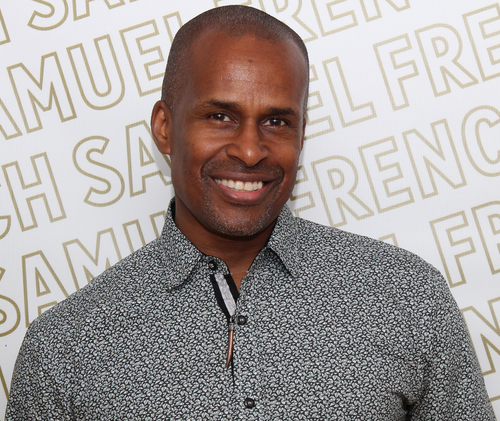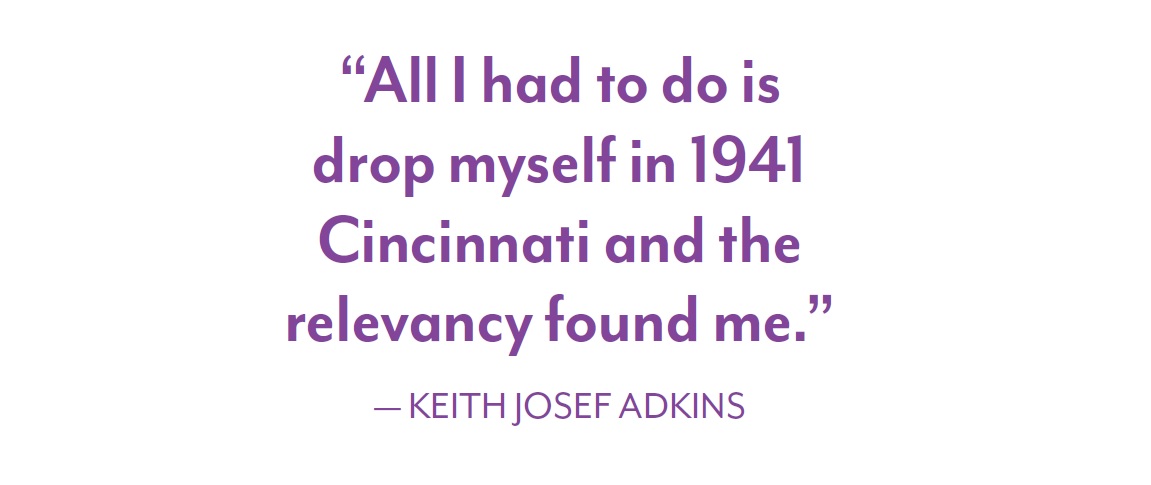Close to Home
Sep 22, 2021

Playwright Keith Josef Adkins provides
insights into the relevance and personal
connections to his new drama The West End —
a world premiere and Playhouse commission.
Which plays or playwrights have influenced you the most throughout your career and particularly within the context of The West End?
As an early-career playwright, I was mostly
influenced by the works of Lorraine Hansberry,
Henrik Ibsen, August Wilson, the canon of
novels by Toni Morrison, as well as the works
of several of the classic Black playwrights such
as Phillip Hayes Dean and Adrienne Kennedy.
However, during the development of The West
End I’ve specifically thought of the canon
of August Wilson and his desire to put a
spotlight on his Pittsburgh hometown.
Why do you feel the Great Migration is such an imperative historical moment?
It’s no secret that
many African Americans
navigated unapologetic
and systemic racism in
those southern states.
From Jim Crow to the
Klan, every day could
begin or end with
danger or exploitation.
The Great Migration
provided many
(including my family) an
opportunity to expand their economic goals.
It also provided a respite after 150 years of
institutional southern racism. Was the North
free of social and economic obstacles?
Absolutely not. But for many, it was better
than the South. In the case of my family,
Cincinnati’s West End was the destination
and the place they could pour into their
children and grandchildren all the hopes they
couldn’t achieve in Georgia.

The West End contains relevant themes to current struggles in the Black community. What do you feel your play has to say about America today?
Truth is, I didn’t have to do much digging to find the political or social relevancy of my play. All I had to do is drop myself in 1941 Cincinnati and the relevancy found me. There was systemic racism, unwarranted xenophobia, gender politics, class politics and all of that spinning around the beginning of a world war. It was clear to me that not much has changed. We’re dealing with many of the same issues now.